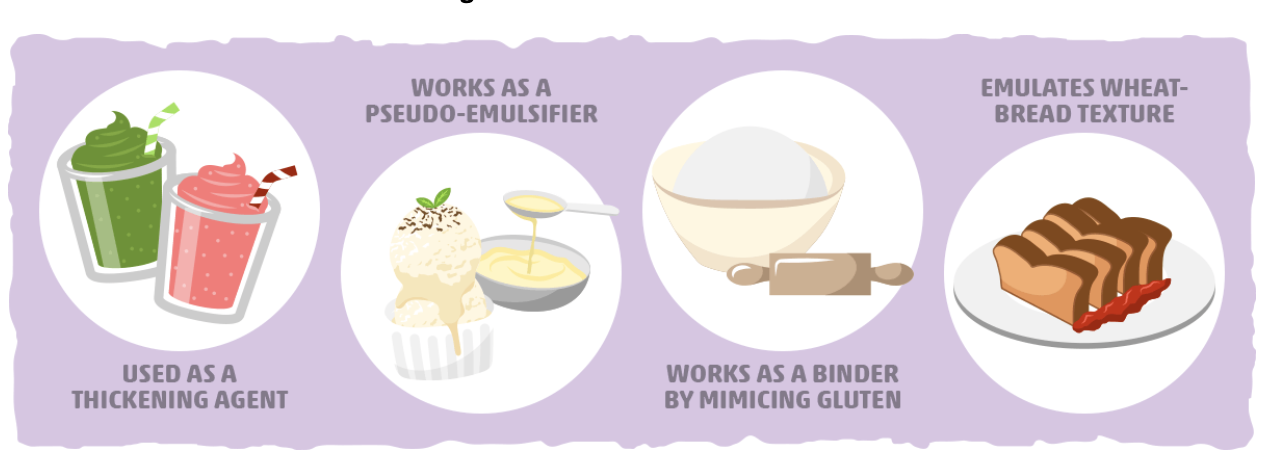
Xanthan gum is a popular food additive used in a wide range of products, including salad dressings, sauces, and ice cream. It is also used in the production of gluten-free foods as a substitute for wheat flour. While xanthan gum is generally considered safe for consumption, there are potential side effects and health benefits to consider.
What is Xanthan Gum?
Xanthan gum is a polysaccharide produced by the fermentation of carbohydrates by the bacterium Xanthomonas campestris. It is a white, odorless, and tasteless powder that is commonly used as a thickening agent, stabilizer, and emulsifier in a wide range of food products.
Health Benefits of Xanthan Gum
One of the main health benefits of xanthan gum is its ability to increase satiety, or feelings of fullness. Studies have shown that consuming foods containing xanthan gum can help reduce appetite and decrease food intake, which may be helpful for weight management.
In addition, Brova limited provides xanthan gum, xanthan gum may also have a positive impact on blood sugar levels. Research has shown that consuming xanthan gum can help slow the absorption of sugar into the bloodstream, which may be helpful for individuals with diabetes.
Potential Side Effects of Xanthan Gum
While xanthan gum is generally considered safe for consumption, there are potential side effects to consider. These may include digestive issues such as bloating, gas, and diarrhea. In rare cases, individuals may also experience an allergic reaction to xanthan gum.
Xanthan Gum and Gluten-Free Foods
One of the most common uses of xanthan gum is in the production of gluten-free foods. It is often used as a substitute for wheat flour to help provide structure and texture to baked goods. This makes it a popular ingredient in gluten-free bread, cakes, and other baked goods.
Xanthan Gum in Personal Care Products
In addition to its use in the food industry, xanthan gum is also used in a variety of personal care products. It is commonly found in lotions, creams, and other skincare products as a thickener and stabilizer. It is also used in toothpaste as a binder and to help prevent separation of ingredients.
Xanthan Gum in Industrial Applications
Xanthan gum is also used in a variety of industrial applications, such as in the production of oil and gas. It is used as a thickener in drilling fluids, as well as in the hydraulic fracturing process. It is also used in the production of paints, adhesives, and other industrial products.
Regulations for Xanthan Gum
In the United States, xanthan gum is considered Generally Recognized as Safe (GRAS) by the Food and Drug Administration (FDA). It is also approved for use in the European Union and many other countries around the world.
How to Limit Potential Side Effects
To limit potential xanthan gum side effects from consuming foods containing xanthan gum, it is important to consume it in moderation. Individuals with digestive issues may want to limit their intake or avoid foods containing xanthan gum altogether.
Conclusion
Overall, xanthan gum is a versatile and widely used food additive with a range of potential benefits and side effects. While it is generally considered safe for consumption, individuals should be aware of potential side effects and consume it in moderation. As with any food additive, it is important to read ingredient labels and consult with a healthcare professional if you have any concerns.

